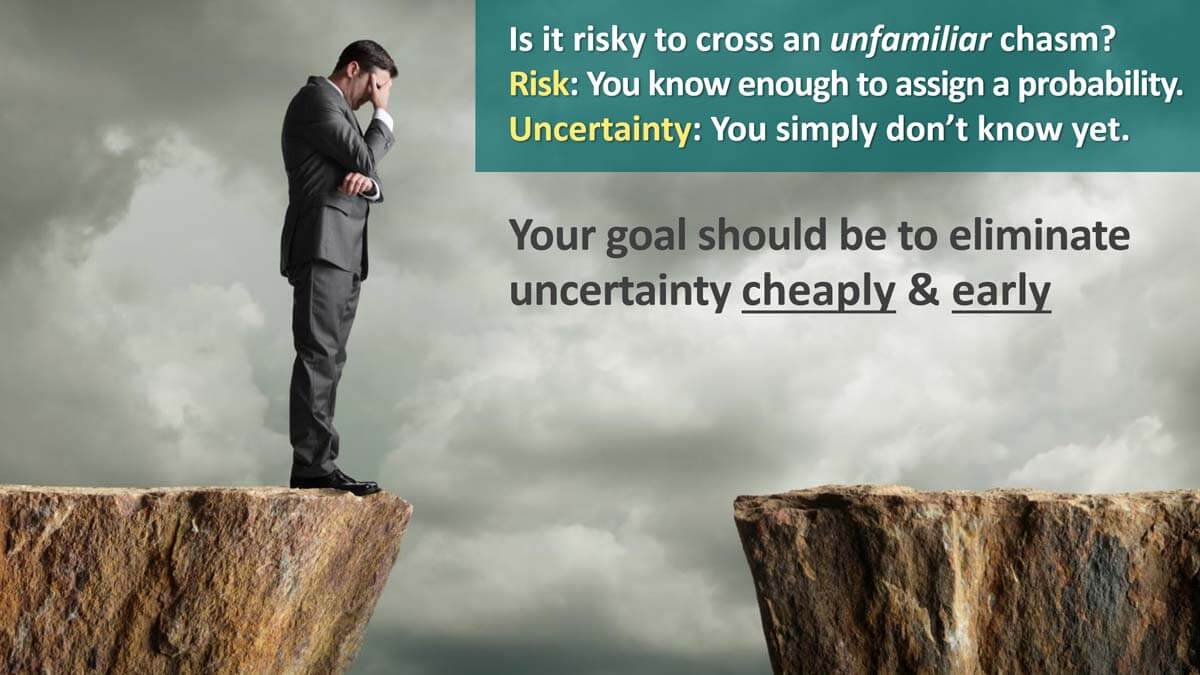You’ll have much better project reviews if they understand this difference. You can only assign a level of risk if you know the probability of an unfavorable event, e.g., 40% chance of a thunderstorm. It’s pointless—even misleading—to assign probabilities of success, net present values, and so forth in a project’s early phase. That comes later, after your team drives dozens of assumptions from uncertainty to certainty. The methodology for doing this isn’t difficult: Check out this 2-minute video at Why risk and uncertainty are different.
More in video, Project de-risking with Minesweeper® software
My golden rule of investment is, “Make your decision when you’ve gathered the most facts and spent the least money.” If you do it right, this point in time is the gate just before the costly development stage. Most companies are far too casual here, letting each team build and present its own unique PowerPoint slides. Human nature says teams will use these slides to talk about their project’s strong points, avoiding weak areas.
So management tries to guess what’s missing: “What about the competition? Are there more technical risks? Is the problem this? Is it something else?” This shell game is waste of time, money and self-respect. Better to have a standard business case everyone works from. Here’s a sample of an abbreviated business case called a Market Case: www.marketcasesample.com
More in 2-minute video, Build a front-end business case
When it comes to transformational R&D projects, clever project de-risking is only half the battle. The other half is gaining the confidence of the entire leadership team. Few teams do this well. Instead they assemble detailed PowerPoint presentations focused on the project’s good points. Within 3 or 4 slides, they confound everyone except their sponsor, the technology head.
More in article, How to de-risk projects and overcome management doubt
No team wants to waste time on a loser: Life is too short. So if management has to stop a project, the team was inexperienced, communicated poorly, or had different expectations than management. All these ailments are addressed by requiring every team to use a common business case template, not their own, start-from-scratch PowerPoint® presentations.
More in article, How Leaders Can Accelerate New-Product Development
Do you have a true team… or just some “emissaries visiting from foreign functional areas”? Winning teams share these traits: a) Management signals this work is a top priority, b) the team leader is enthusiastic and capable, c) team success impacts personal performance reviews, and d) the team members want to be part of this team.
More in article, What’s Restraining Your Growth? Your Time Horizon





